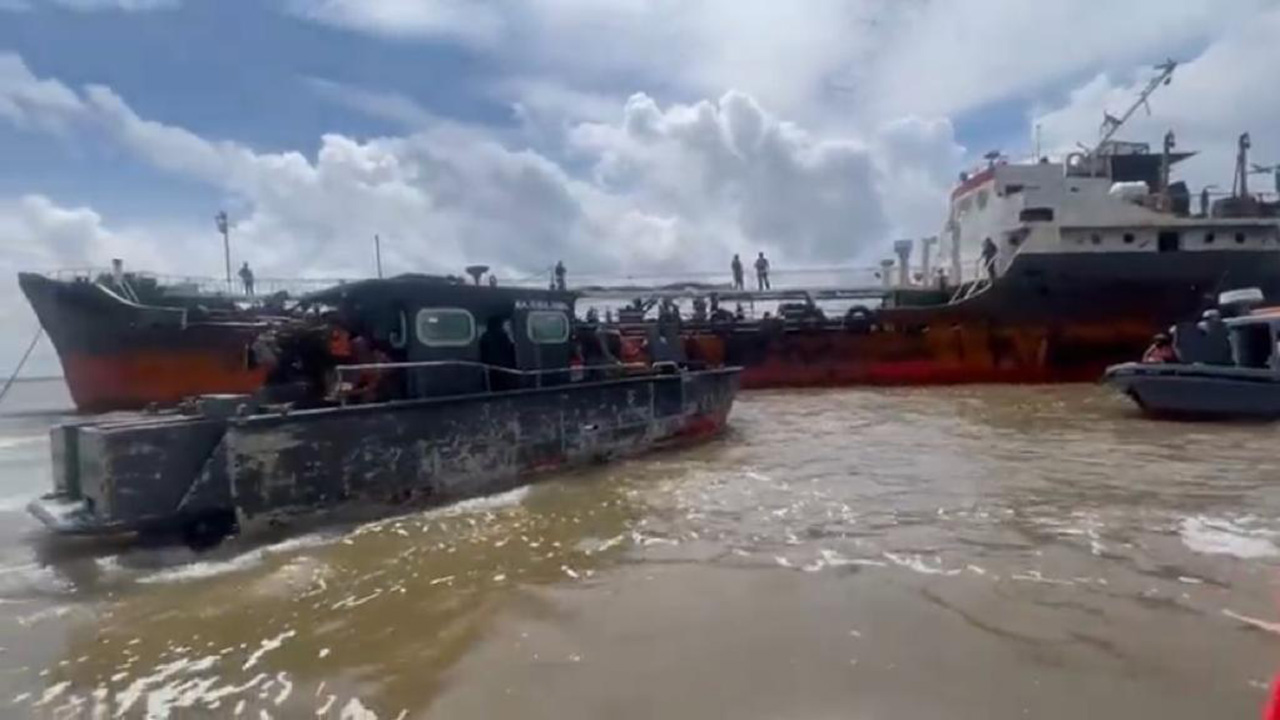
The practice and procedure for arrest of ship in Nigeria are governed by the Admiralty Jurisdiction Procedure Rules applicable to the Federal High Court. On May 18, 2023, the Chief Judge of the Federal High Court ‘enacted’ the Admiralty Jurisdiction Procedure Rules, 2023 (‘the new Rules’ or ‘AJPR 2023’) which effectively repealed the Admiralty Jurisdiction Procedure Rules, 2011. The new rules introduced significant innovations to ship arrest practice in Nigeria.
For one, the Federal High Court can now arrest a ship to aid a foreign court, or an arbitration commenced within or outside Nigeria. The new Rules equally introduced e-filing for applications for warrant of arrest of a ship and provided an enviable timeline for the hearing and determination of such applications. This article seeks to examine these innovations in detail with a view to highlighting the extant position of the law as regards the practice and procedure for arrest of ship in Nigeria.
Key innovations of the new rules regarding ship arrest
The innovations introduced by the new rules concern the arrest of ship in cases where the substantive action is pending in a foreign court or before an arbitral tribunal sitting in or outside Nigeria; the filing of an application for a warrant of arrest of a ship; and the hearing of the application. Each of these innovations will be discussed in turn in the next paragraphs.
Arrest of ship in cases pending before an arbitral tribunal or foreign courts
Order 7 rule 8 (1) of the AJPR 2023, introduced a very radical change in the practice and procedure of Admiralty jurisdiction in Nigeria. The new Rules provide that an application for a warrant of arrest of a ship could be made in Nigeria even where the substantive action is pending in a foreign court or in an arbitration proceeding commenced within or outside Nigeria.
In other words, the new rules empower the Federal High Court to simply order an arrest of a ship as security or interim measure for a potential foreign judgment or arbitration award. Prior to the new Rules, an application for a warrant of arrest of a ship cannot be made in a matter where the substantive action is pending before a foreign court or arbitral tribunal.
This was the position of the Nigerian Supreme Court in NV Scheep v MV “S.Araz” (2000) 15 NWLR (Pt. 691) 622 where the Supreme Court held that the Federal High Court could not order an arrest of a ship for the purpose of obtaining security in respect of arbitration proceeding in London as the actual matter giving rise to the demand for security was not before the court.
In that case, the Supreme Court however conceded that an order for arrest of a ship as security for an action is within the realm of adjectival law which is governed by the rules of court. The Supreme Court further made the point that a statute could create a cause of action that allows an arrest to be made as security for an action such as section 26 of the U.K. Civil Jurisdiction and Judgments Act, 1982.
The court then examined the Admiralty Jurisdiction Act (AJA) of 1991, particularly sections 1, 2, 5 and 10 and held that the admiralty jurisdiction of the Federal High Court could not be invoked for the sole purpose of obtaining security for the satisfaction of a potential award in a foreign arbitration.
The crux of the position before the new Rules is that a substantive action must be filed at the Federal High Court before an order of arrest could be made. In K. Maertsch v. Bisiwa (2014) 10 NWLR (Pt. 1416) 479, the Court of Appeal put it this way, “in an admiralty action, the jurisdiction of the court to arrest a ship cannot be activated until a writ of summons is issued and a statement of claim is served on the said ship.”
In other words, a party who has commenced an arbitration in Nigeria or elsewhere could not approach the Federal High Court for a warrant of arrest of a ship. Similarly, a party who has approached a foreign court to adjudicate a claim could not approach the Federal High Court for a warrant of arrest of a ship in order to obtain security for the claim.
However, the new Rules have now changed the outlook of the law in this respect. For the avoidance of doubt, Order 7 rule 8 (1) of AJPR 2023, provides as follows:
Notwithstanding the provision of Order 3 and Order 7 (1) of these Rules, where an application is for a warrant of arrest of a ship or other property in respect of a claim commenced in a court outside Nigeria or commenced by way of arbitration proceedings within or outside Nigeria, such an application can be made without commencing an action before the Court for the substantive claim.
The above provision derogated from Order 3 rule 1 of the AJPR 2023, which requires that an admiralty action should be commenced by a Writ of Summons or Originating Summons. The provision equally derogated from Order 7 rule 1 which stipulates that an application for a warrant of arrest of a ship is open to a party to a proceeding commenced as an action in rem. In other words, a substantive action needs not be filed at the Federal High Court before the court can order the arrest of a ship.
As earlier noted, the Supreme Court of Nigeria in NV Scheep v MV ‘S. Araz’ decided in the year 2000 to recognise the fact that the issue of security for an action is within adjectival law which is covered by the rules of court and could equally be provided for in a statute.
Twenty-three (23) years after that decision, the new Admiralty Jurisdiction Procedure Rules 2023 has now provided for an application for a warrant of arrest of a ship where the substantive case is pending before a foreign court, or where an arbitration is pending in or outside Nigeria.
Particularly in relation to arbitration pending in or outside Nigeria, there is also the new Arbitration and Mediation Act 2023 (AMA 2023), which empowers the Nigeria courts, the Federal High Court included, to grant interim measures where arbitration is pending in Nigeria or elsewhere. There was no such power under the repealed Arbitration and Conciliation Act, Cap A18, LFN 2004. To be sure, section 19 of the AMA 2023 establishes as follows:
“Without prejudice to section 16 of this Act, a Court has the power to issue interim measures of protection for the purpose of, and in relation to arbitration proceedings whose seat is in the Federal Republic of Nigeria or is in another country as it has for the purpose of, and in relation to proceedings in the Courts, and shall exercise the power within 15 days of any application, in accordance with the rules set out in the Third Schedule of this Act.”
Section 91 of the AMA 2023 defined ‘Court’ to include the Federal High Court. The implication is that the Federal High Court is empowered by both the AMA 2023 and the AJPR 2023 to order the arrest of a ship as an interim measure or security for a potential arbitration award. The new Rules extend the powers of the court to make such an order for a potential foreign judgment.
An arresting party seeking to take advantage of the new position in Nigeria is required by Order 7 rule 8 (2) of the new Rules to support his application with the original or certified true copy of the processes pending before the foreign court or arbitral tribunal. The arresting party is also required to submit an undertaking to indemnify the ship or the owners for losses suffered if it turns out that the arrest ought not to have been made.
Finally, Order 7 rule 8 (5) of the new Rules provides that the original copy of the indemnity must be served on the ship at the time of executing the arrest.
Filing of an application for a warrant of arrest of ship
Another innovation introduced by the new Rules relates to the filing of an application for a warrant of arrest. Specifically, Order 7 rule 1(2) of the new Rules introduced e-filing for application for a warrant of arrest of a ship. That is, a party seeking to arrest a ship in Nigeria is at liberty to file the application for warrant electronically or physically at the Admiralty Registry. Interestingly, the e-filing envisaged by the new Rules is simplified as the new Rules only require the applicant to send the Portable Document Format (PDF) copies of all relevant processes to the email address designated by the Admiralty Marshall.
By Order 7 rule 1 (3) of the Rules, the Admiralty Marshall is required to provide email address for receipt of processes relating to arrest of ships in Nigeria. The new Rules further provide that payment for the processes shall be made online and evidence of payment forwarded to the designated email address.
To be continued tomorrow Ozuo is a Port Harcourt based lawyer.






